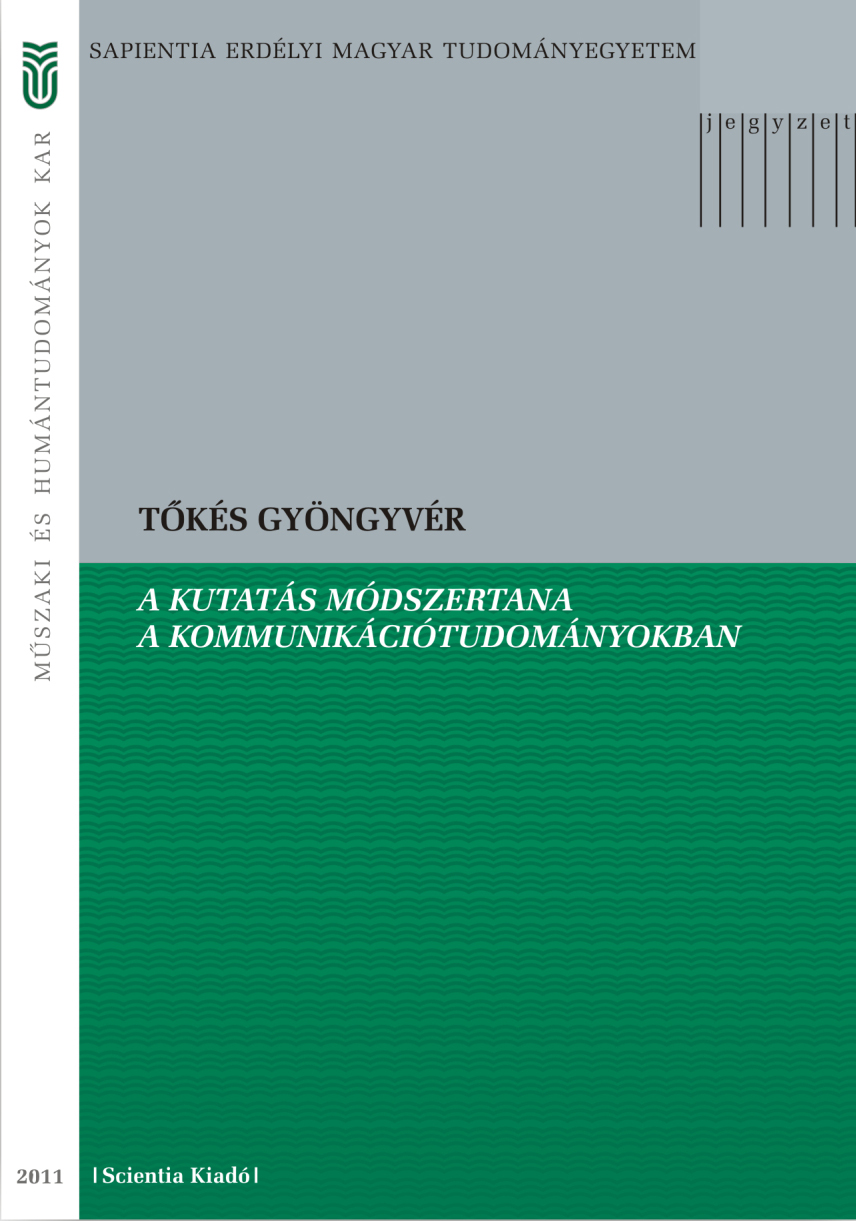A kutatás módszertana a kommunikációtudományokban
Research Methodology in the Communication Studies
Author(s): Gyöngyvér Erika Tőkés
Subject(s): Theory of Communication, Methodology and research technology
Published by: Scientia Kiadó
Keywords: steps of the research process; research methods; cognition; random sampling;
Summary/Abstract: The aim of the book is to acquaint the communication and public relation students with the logic of scientific cognition, the steps of the research process and the key research methods of communication studies. In the volume, the students may read about qualitative and quantitative methods of the social sciences and about text analysis techniques of the humanities. In conclusion, we present the main rules regarding the elaboration of a scientific publication and about the giving of a scientific presentation. The first chapter presents the forms of cognition, the peculiarities of scientific cognition, emphasizing the differences between scientific and commonplace cognition. The second chapter presents the preparation phase of the research, the difficulties of formulating the research problem and the steps of the completion of the research plan. The third chapter deals with the question of sampling. The fourth chapter discusses the research ethic and the most common moral convictions guiding scientific research. The fifth chapter is about the importance of the bibliographic review in the research process. From the sixth to the tenth chapters, we present the main data collecting methods like direct observation, the interview, the focus group, the questionnaire survey and content analysis. The eleventh chapter gives some statistical procedures of the quantitative data analysis. In the twelfth and the thirteenth chapters, we present the textual analysis opportunities of the moving pictures, like narrative and genre analysis. The fourteenth chapter presents the basic principles of the completion of a research report and of a scientific publication. The fifteenth chapter shows the rules of giving a successful scientific oral presentation. Every chapter has a similar structure. Following each chapter, the reader receives review questions, which help him to check his acquired knowledge. The review questions continue with exercises, which help the students to apply the gained knowledge. The chapters end with annotated bibliography where we indicate additional useful sources to facilitate further enrichment of knowledge. The review questions and exercises require individual solutions and help the students in their home preparation. At the end of the volume, we compiled a dictionary of the terms used in three languages (Hungarian–Romanian–English), in order to assist students in getting acquainted with the methodological terminology in these languages.
Series: Jegyzetek
- Print-ISBN-13: 978-973-1970-35-6
- Page Count: 320
- Publication Year: 2011
- Language: Hungarian
- Table of Content
- Sample-PDF
- Introduction
- eBook-PDF

